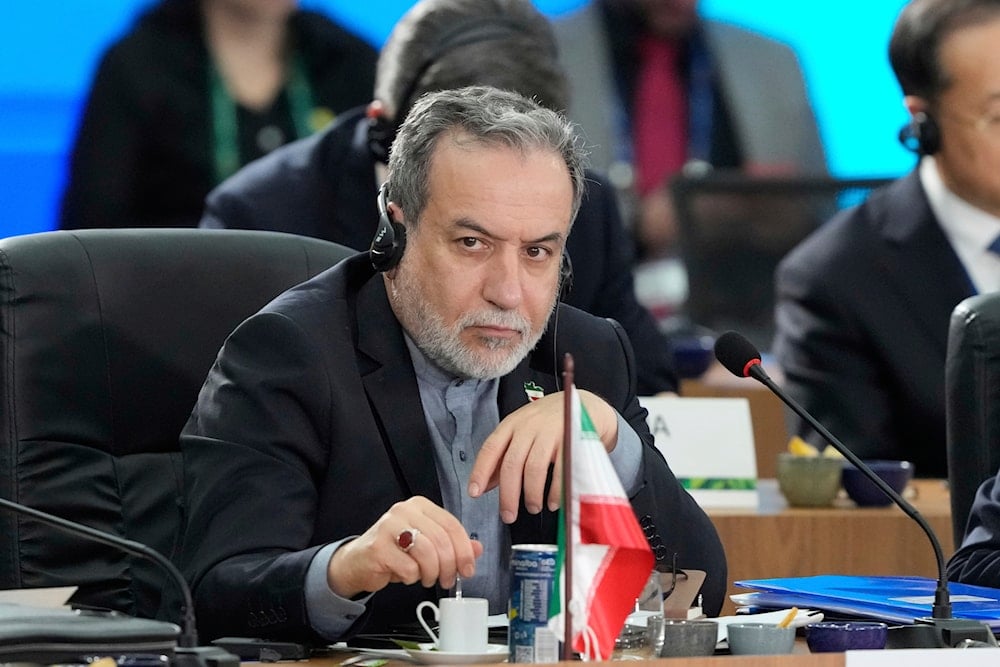Iran's cooperation with IAEA has not ceased, taken new form: Araghchi
Iran's foreign minister asserts that there is no alternative to diplomacy and a negotiated and agreed solution.
-

Iranian Foreign Minister Abbas Araghchi attends the 17th annual BRICS summit in Rio de Janeiro, Sunday, July 6, 2025 (AP)
Iran's cooperation with the International Atomic Energy Agency has not stopped, yet it has taken a new form, Iranian Foreign Minister Abbas Araghchi said, warning Europe that its insistence on the snapback mechanism would end its role in Iran's nuclear file.
Addressing ambassadors, chargés-d'affaires, and heads of foreign missions during a meeting at the Foreign Ministry's compound in Tehran on Saturday, Araghchi expressed Iran's gratitude toward the nations that denounced "Israel's" recent act of aggression, emphasizing that approximately 120 countries condemned the offensive actions carried out by the Zionist regime and the United States against Iran.
Asserting that Iran has remained a compliant member of the NPT while maintaining its collaboration with the Agency, Araghchi asserted, "Our cooperation with the Agency has not stopped, it has just got a new form. From now on, relations with the Agency will be managed through the Supreme National Security Council (SNSC)."
Cooperation will be on a case-by-case basis
He emphasized that "the Agency's request to continue cooperation with Iran will be reviewed on a case-by-case basis by the SNSC, and decisions will be made taking into account safety and security," the top diplomat explained.
"Security and safety are a matter of concern for inspectors approaching attacked nuclear facilities," Araghchi clarified.
Reviewing details of possible talks
Furthermore, he clarified that Iran was reviewing the details of a possible resumption of talks with the United States on its nuclear program.
"We are examining its timing, its location, its form, its ingredients, the assurances it requires" from Iran for possible talks, said Iran's lead negotiator.
He also reminded the attendees how Iran's nuclear facilities had come under attack, emphasizing that their current proximity raises serious hazards such as potential radioactive contamination or explosions, and stressed that the safety and security risks must be a key consideration for inspectors when accessing these sites.
"There is no other way but to return to diplomacy and a negotiated and agreed solution, and the recent war proved this even more than before," the Iranian foreign minister stated, noting however, that "before that, the other side must reassure us that they want diplomacy, not that diplomacy is a cover to achieve their objectives."

 3 Min Read
3 Min Read










